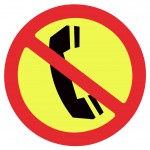 Are phone calls the life blood of your business?
Are phone calls the life blood of your business?
It’s not true with online-only companies, but brick-and-mortar stores can live & die by the phone call. I have a client who claims that he can close one sale for every four phone calls versus closing one sale for every ten “contact me” forms completed on his website. Wow, that’s a big difference and I learned that he didn’t know exactly how many phone calls he was getting or whether they could be considered legitimate “leads.”
My client uses Salesforce.com for managing leads and deals that are in the sales cycle and at various points of closing. Even though his website has a “leads-to-forms” application that automatically puts completed forms into Salesforce, phone calls that turn into leads must be manually entered by the sales people. He was very disappointed that his reports would only show a few phone calls per month. Knowing the difference in close ratios for phone calls, he was desperate to see more calls coming in.
I was introduced to a marvelous service called IfByPhone by a colleague who indicated that it might be very valuable to me. Was he right, or what?
I spent some time researching this service. Essentially, IfByPhone provides, among many services, call forwarding to your main business telephone number. When someone searches on Google for instance, your PPC ad or organic listing is displayed. If the searcher clicks on either, they are taken to your website page, however, and this is pretty cool, IfByPhone presents a unique, dynamic telephone number, which if called, is used to track that searcher’s call all the way through to completion. If the searcher calls within 60 minutes of viewing your webpage (and unique number), IfByPhone can report on the keyword phrase the caller used to find you. In addition, you also receive the caller ID in reports that can be generated “on demand.”
Imagine what you can do. You know who called and when; you know, in most cases, for what they were searching; and you know the length of the call (did they talk with anyone or just leave a voicemail). Not only are you able to see if the salespeople are putting leads into Salesforce, you’re able to accurately determine which keywords and phrases are generating the most calls and can then alter your SEO or PPC strategies accordingly.
I would think that the energetic salesperson could also use the caller ID information to place a “cold” call, knowing in advance where their interest lies. That’s about as warm a “cold” call as you can get.
This has been incredibly helpful for my client. He feels better informed and that he now has a better handle on what kinds of phone calls he’s getting as well as the accuracy of his Salesforce management system. We are also using the keyword data provided to improve conversions through SEO and PPC.
So, does your business rely heavily on the phone call? If it does, you may want to consider IfByPhone.
I’d love to know your thoughts.
David

